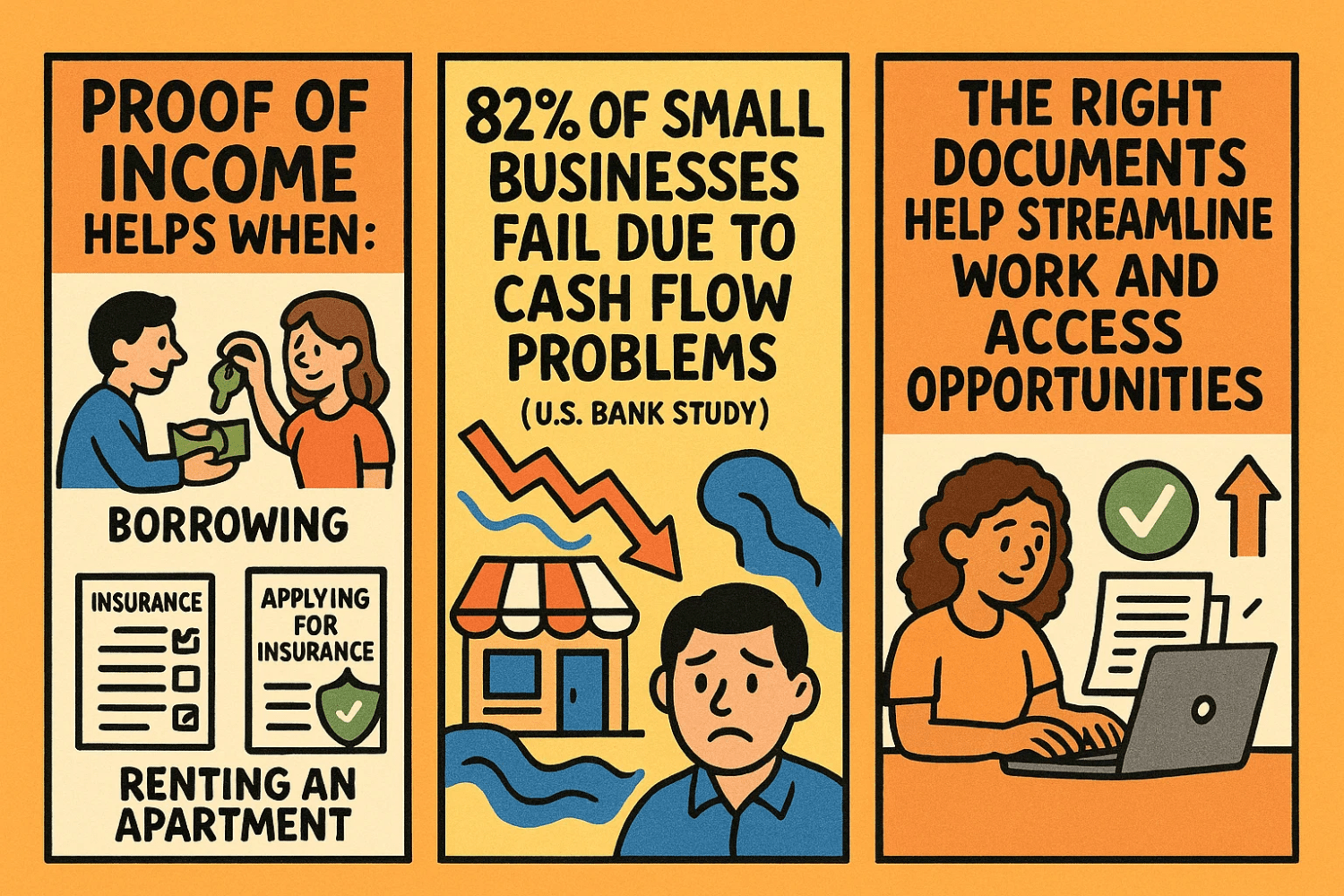Freelancers juggle projects, deadlines, and clients every day. Given this, it’s easy to let paperwork pile up or slip through the cracks. But as most of us know, clear records keep work — and life — much simpler! Staying organized helps you land new gigs and pass financial checks. You never want to scramble for missing files when a big opportunity comes your way.
Curious about what belongs in your “must-have” document stack? Read along as we break down eight documents that set modern freelancers up for success.
1. Contracts That Clearly Define Roles and Terms
Taking on multiple clients at once can get confusing fast if expectations are not in writing. For each project, it’s good to have a contract that outlines:
- What you will do,
- When you will deliver it,
- How much you’ll get paid,
- And what happens if someone wants to end things early.
A strong agreement also covers who owns the finished work and how any disagreements will be handled later on. Clear contracts prevent headaches before they start and protect both sides when issues come up.
2. Paychecks That Outline Income for Each Month
Most of us working for ourselves know the challenge — proof of income is essential when you want to rent an apartment or qualify for a loan. Lenders look at paychecks before they offer any credit, and tax agencies want a clear record come April.
Insurance companies also check your recent earnings; let’s say when applying for health or disability coverage.
With today’s online generators, making paystubs is pretty simple. Every good document should follow a reliable paystub design checklist that essentially:
- Shows who paid you,
- Spells out gross and net amounts,
- Lists deductions like taxes or benefits,
- And notes any reimbursements received.
3. Invoices Detailing Client Work and Payment Status
You know what causes a whopping 82% of small businesses to fail? That’s cash flow problems, according to a U.S. bank study. For freelancers, this starts with getting paid on time — and that means clear invoices for every project.
That said, good invoicing includes your contact info, details of the work completed, payment terms, and due dates.
Adding digital backup like online timesheets or automated delivery confirmations can help keep records clear. This way, you can also follow payments in real-time and resolve questions without digging through stacks of paperwork.

4. Tax Forms Used for Annual Reporting
Every April, Uncle Sam expects you to be a responsible citizen. He needs you to file documents showing exactly how much you made and what taxes you already paid.
Freelancers handle forms like the 1099-NEC or Schedule C, depending on income sources and business setup. Accurate records help if questions pop up about write-offs or payments later on.
A folder with past returns, client lists, receipts, and proof of payment makes preparing your taxes less stressful each spring—and easier if an audit ever happens.
5. Proof of Business Registration or Licensing
You want to come across as a trustworthy provider regardless of which industry you’re in as a freelancer. That’s why you need to keep official paperwork — like an LLC certificate, local business license, or trade permit handy.
These documents show clients and agencies that you follow the rules, not just the authorities. Many platforms and big corporate clients ask for these before they’ll hire or pay you.
Up-to-date registration also helps with opening business bank accounts or getting better payment processing rates from vendors.
6. Receipts Tracking Deductible Expenses
Storing receipts might seem tedious, but these records cut your tax bill when itemizing deductions. Every business lunch, new laptop, or software subscription can matter at filing time.
A digital folder makes it easier to keep things organized for the year. When you’re ready to file taxes or show proof of spending, everything’s in one spot and easy to find.
7. Project Briefs or Statements of Work
A good project brief keeps everyone on the same page about goals, deliverables, and deadlines. Clients see what they’re paying for, and you avoid last-minute surprises.
Clear documentation makes sure there’s less back-and-forth if questions pop up later. It can also help resolve disputes quickly since all the expectations are spelled out from day one.
8. A Professional Resume or Work Profile
Finally, what makes people want to enlist your freelance services? It usually starts with a strong resume or project portfolio.
Having clear records of past clients, case studies, and completed work builds credibility in any field. Clients look for specific skills and outcomes before they trust you with their projects. Keep these documents current, so opportunities don’t pass you by.
Endnote:
Staying ready with the right documents helps freelancers move quickly when opportunities arise. It helps you keep operations streamlined. Simple habits today often prevent costly delays or missed chances down the line, no matter your industry.












